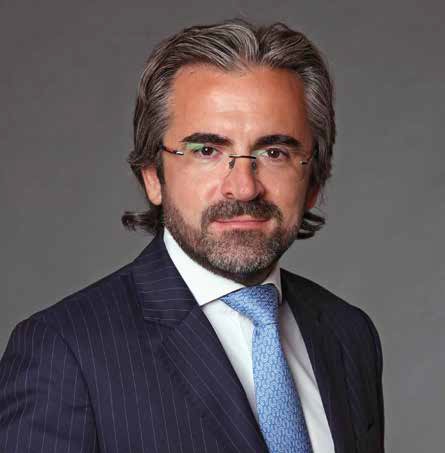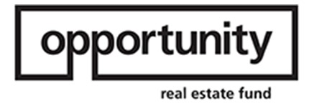We were honored to take part in the unique gentleman's game at the Prague Polo Cup 2019, traditionally held at the Levín farm near Benešov.
Karlin Port Real Estate is entering the segment of atypical hostel trends
Milorad Miško Miškovič has lived in the Czech Republic for 26 years. For 23 years of that he's been working in the real estate segment. In the exclusive interview he gave to Development News he praises Prague or let's say the Czech real estate market.

He believes that the quality of apartments in Prague has, at least from one point of view, progressed so much that we are absolutely unaware about the the quality of building - in comparison with West-European metropolises - and what the standard of finish is even in the residential segment.
We were mapping out the current projects of Karlin Port some 6 months ago. What has progressed in this area since?
We are now completing a project entitled Aalto Cibulka, which we purchased together with YIT. By the end of the year there should be the completed construction of 250 apartments in the Košíře-Cibulka location. We are also a year prior to the completion of the 78 Mánesova building, which we purchased last May and commenced reconstruction in the autumn. I would like to point out that it is an exceptional reconstruction - and it is visible. It is not a reconstruction done in some sort of Italian style'. It is really thorough. If you entered the building today, you would see a completely open area from the ground floor all the way to the roof. Within the framework of the existing building permit and demolition notification, we disposed of all the flooring, beams, windows, doors, tiling in passages outside, etc. I always watch in astonishment at a building company's reports stating how many cubic metres of concrete and how many kilos of steel will be put into the building. Even that shows that - according to the building permit of course - we removed from the shell everything that an average and above average local as well as foreign developer, who does business here, wouldn't do.
How many apartments are you currently offering there?
We have 33 residential units and two non-residential ones in Residence Mánesova 78. We are in the reconstruction process but at the same time also in the process of sales. So far, we have sold 1/3 apartments. The average selling price is 160,000 CZK/sq m now. This does not include VAT as it is a reconstruction. Unfortunately, the building doesn't come with an underground car park so we cannot offer them even for the largest apartments. Otherwise I believe that we would be able to reach even 200,000 CZK/sq if it came with parking for it is situated in the centre of Vinohrady.
Does it mean that marking is also important for the project from an economic point of view?
Certainly. Parking will be even more important for properties in the more luxurious segment in the centre or the broader centre than it is now. I think that the luxury segment only forms 3-4% of apartments that are put onto the market every year. That means that the 3-4% of people who want to buy a really luxurious house, apartment or office do not only deal with the issue of premises and their equipment per se - that comes naturally to them - but they deal with the issue of parking. And parking does not only solve the current situation for those buying a residential unit but it is about creating an investment product. The investor is buying it from us today but in some five, seven or ten years, he will be able to sell the apartment with parking for a much higher price.
That means that current apartment prices are not at their top level yet, is that right?
When we look at global trends of property prices, their quality, the offer of services, etc., there is no reason why property prices in the best location in Prague, such as Vinohrady, should not be twice the level in ten years' time, I believe that investors - at least with regards to this segment-are starting to think along the way of 'I buy, lease, will have some yield and will then expect that it will go up', but they also presume that they will sell the property for a much better price in some five, seven or ten years' time. And this is not to happen only for the fact that Prague is to increase further but also due to the quality of real estate, including parking. When it comes to clients who want to invest CZK 20 million and more in an apartment, I deal with them in person. It is either someone I already know or someone new and in that case I want to find out what actually made him to do this. I consider the fact that other developers don't do it but those who don't do it at all are mediators. I am planning to stay here for another ten years and will wait for price increases in the best locations. It will not only be about growth as there will also be huge diversification as it was in other large metropolises worldwide. Another thing that is to occur is that every street - not every district - will be priced differently. Only today there are clients coming who will buy because they know that property prices will go up in years to come and they will therefore be able to purchase an even larger, better or simply different property than, let's say, 78 Mánesova. We really can envisage great progress psychologically.
Isn't it rather atypical that you meet virtually all clients personally?
As a developer I must understand what kind of an investor the client is and why he is, possibly, to eventually decide not to buy an apartment in Mánesova. It is training for me, someone might say free of charge. But it is not free of charge. Everything costs, whether it's time, willingness, etc. However, I think that if someone invests 20 million or more - the developer should pay attention to him. The point is to acquire all possible information regarding his decision on what makes him purchase here in particular... Communication in business is alfa omega. Otherwise, I must say that the quality of apartments in Prague has, during my involvement in real estate, progressed significantly. Moreover, we don't even realize here the level of build quality - in comparison with other West-European metropolises - what a high standard level of apartments we have in a middle range price segment. Resulting from this is our new activity: the sale of apartments. In the most advanced European countries such as Germany and Switzerland, only 30-40% of citizens own a property.
You haven't been involved in this segment for long...
We only got to town houses a year and a half ago. The decision to invest in town houses was a result of what was happening in the capital with regards to building approval. We are awaiting the approval of the change of the outline plan, planning permits and building permits in many places. Due to that we, as one of a few developers, decided to invest in town houses. We wanted to be active and have enough work for our team. Town houses at least offer some basis and a building permit for a reconstruction can be sorted within the appropriate time.
What are your other plans?
We are in the process of purchasing two other buildings in Prague 2. However, this doesn't mean that we only want to purchase town houses here. We are looking at the best locations - Karlín, Letná, Žižkov, Vinohrady and naturally the 'small Paris' or the city centre - Josefov, that is the area between Old Town Square and the Vltava River. That is where I would like to let off steam and have a field day from an architectural as well as a development point of view.
Are you also preparing new concepts?
We have agreed with our new foreign partner, a Spanish and German consortium, the development of trendy atypical hostels. This represents a new segment for us. If this works in Prague, we have an agreement to also expand it to Budapest, Berlin and Bratislava. It is a relatively new concept: The Spanish and German consortium already owns hostels throughout Europe as well as outside of Europe, they are pleasantly and comfortably equipped so they are also visited by slightly older people - even for further days as they are happy with their comfort and appearance. It is not about sleeping with another ten students in one room. You can choose the number of people in a room. We are only considering Prague 1 and Prague 2. We want to buy, reconstruct town houses and hotels, which we will turn into hostels and operate them over the long term.
Does it mean that you also focus on the suburban parts of Prague?
It's a coincidence. I would also like to add that in the case of Zličín, we lost an informal tender for the third plot we really endeavoured for last November. It was the former Siemens complex, before the Tatrovka complex, which was owned by PSN. Karlin Port endeavoured for it for a long time, almost two years, in co-operation with one large Chinese entity. It was 33-hectares area where we wanted to build a new beautiful district, which would be exceptionally interesting from an architectural point of view. The Chinese investor also wanted to build a university, a gallery and a museum that would remain in the capital's ownership and other noncommercial elements that hardly any developer in Central Europe - or Europe per se - would deal with this way.
Did this beautiful project for Prague fall through then?
It was eventually purchased by Central Group, which is planning to build more than 4,500 apartments there. We are not worried about losing but it is a shame not only for us and our Chinese partner respectively but also for the capital. There are not many such projects in Prague. It would have huge added value. At the impulse of our Chinese partner, we wanted to build a Chinese-Czech university, a health centre and one variant also accounted with a research centre and a surrounding commercial and residential development, all very well elaborated from an architectural point of view.
– Arnošt Wagner, Luxury Magazine
Get in touch
Questions, thoughts, compliments? We’d love to hear from you.

Invest with Us
Get to know our investment product THE OPPORTUNITY REAL ESTATE FUND. Led by a team of top real estate and investment professionals at KARLIN PORT REAL ESTATE.

